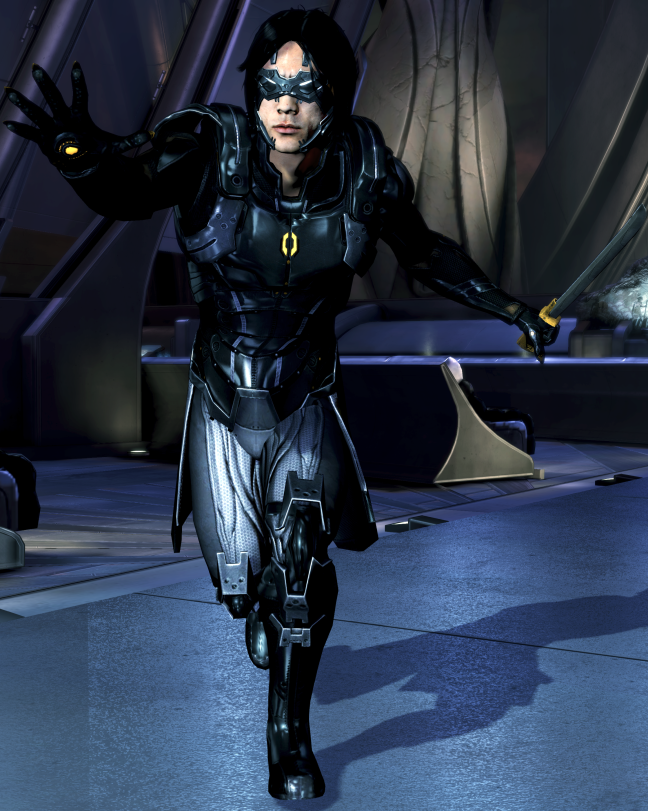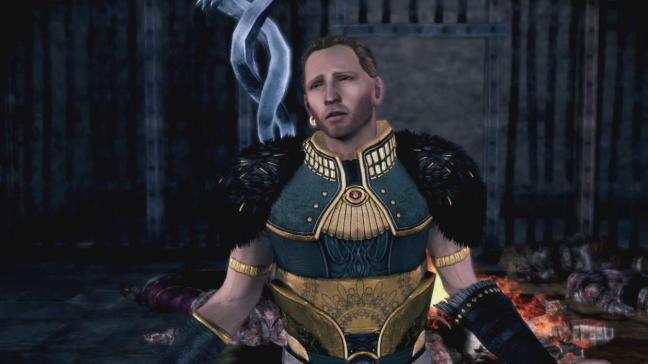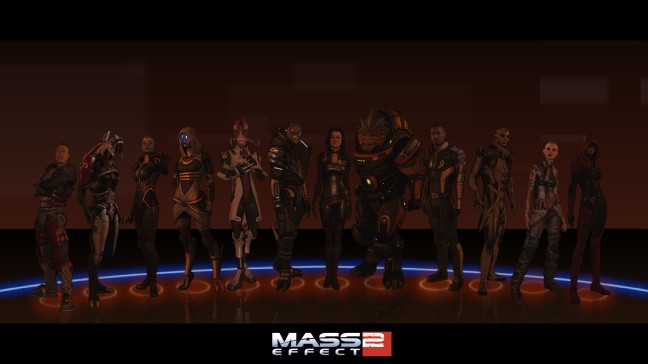Most every major developer in the world of video games has a skill sets their company apart. Want to play a polished game with years of development clearly invested: go Valve or Blizzard. Want a cooky sandbox-style game that plays with morality in a delightfully childish way: contact Peter Molyneux (whatever company he happens to be a part of). Feel like you’re in the mood to play an NFL simulator: well, too bad because EA Sports still holds exclusive rights so it is Madden or nothing. Everyone has strengths. With Bioware, the company has made its reputation on immersive, choice-driven stories. The company exploded into the public spotlight with Knights of the Old Republic, a Star Wars game that featured the greatest twist since Empire Strikes Back.
Since then Bioware has built worlds filled with entangling plots, diverse characters, and morality systems. Of course, the games themselves have evolved over time – and Bioware has made improvements accordingly. Real-time combat has replaced turn-based strategy and advanced animation allows for characters to express more personality. Storytelling is also able to be much more seamlessly integrated into the gameplay, although Bioware’s style has been to use non-playable cutscenes to attain a cinematic quality. How have the stories themselves been? Great! Stellar really across the board, give or take a few complaints. Yet as with any company, there is room for improvement. Here are three areas where Bioware can succeed at even higher levels:
1. Villains
For all the impressive companions that the Bioware writing staff develops, the villains… leave a little to be desired. Not to say that every enemy has been a bore by any stretch, Master Li (Jade Empire) and the Illusive Man (Mass Effect 2 & 3) are definite highlights. Yet for every interesting antagonist, there are two others that just do not work. Kai Leng, the Archdemon, and Corypheus are all prime examples of one-dimensional villains. The player understands that these people are evil because… there needed to be a villain in there somewhere? Motivation breathes relatability and frankly, a lot of Bioware villains just seem to be jerks. A good villain is hard to do well and there needs to be gray area to allow the player to see things from their perspective, even if they do not agree with it. In certain cases, Bioware has tried to give a villain dimension.

The greatest example is Teyrn Loghain, one of the main antagonists in Dragon Age: Origins. Early in the game, the player is trying to help the king win a battle against the darkspawn (the bad guy of the game). The player has to light a torch, signaling Loghain to come in and help with all his men. Here is what happens:
Apparently, Loghain had deemed the battle lost and blames it all on the player. Of course, he clearly did everything he could. Just look at him try and… what a dick. Yes, for all Bioware’s efforts – this attempt did not work. The only thing they succeeded in doing was creating an immense feeling of satisfaction when the player finally had the choice to kill Loghain. As you can imagine, many people chose to do so. Not that this is not an achievement, but given the depth of character writing Bioware exhibits, it is a shame to see so many cardboard cutouts when it comes to the bad guy.

2. Character Consequences
A lot of Bioware writing has creates consequences to be sure. The main one I am highlighting is best shown in Mass Effect 2. For those out there not in the know, the plot of Mass Effect 2 involves summoning a team of experts to take on a highly dangerous suicide mission. Seriously, this mission is super dangerous – like 99% chance of failure. No one really has any hope of… what, everyone lived? Oh, okay then.

Perfection is not perfect. Saving everyone does not breed the best storyline, in fact it can create some real problems with a lot of leftover characters (just look at how they had to handle things in Mass Effect 3). Sure, having an achievement for surviving with everyone is nice but really – it’s dumb and it takes away from the realism and the intensity of the story. Make the player make choices that will get people killed. You can’t make an omelet without breaking a few eggs as they say.
Better example: imagine there was a way to play through Telltale’s The Walking Dead without anyone dying. How much less engaging and emotional of a story would that be?
There is no way to save Carley. That’s what makes it memorable.
3. More Mature Relationships
No, I don’t mean more sex. Bioware has come a long way with this but there is still almost a juvenile obsession with the player’s love life. It can be amusing and make for some great scenes but – with everything that is usually going on in these games, why do people really care? Also, why is it only the player character who ever enters into a relationship? Why not two party members? Yes, Mass Effect toyed with this concept a little but more could be done.

Also, the game places an unhealthy standard by claiming that the sex scene is the climax. As a player, you romance a party member, have sex with them and – that’s it. You’ve won, right? That’s totally how relationships work in real life. It reduces the problems and emotions involved. There are a lot of avenues here like having the player already begin the game in a relationship.
Bioware did this in Mass Effect 3 but it did not feel genuine. Even if the player’s love interest was on the ship, they stayed in their own area and did not really ever interact as a couple. This could have been more due to programming difficulty and time limitations more than anything else. Still, Bioware has pioneered a lot of relationship mechanics in games, it would be nice to see them take the next step in making it more believable, and less about getting laid. Not that there is no place for certain scenes like that:
That is a big man and a little woman…said man also had his chin clip into his chest, amazing.
LikeLike